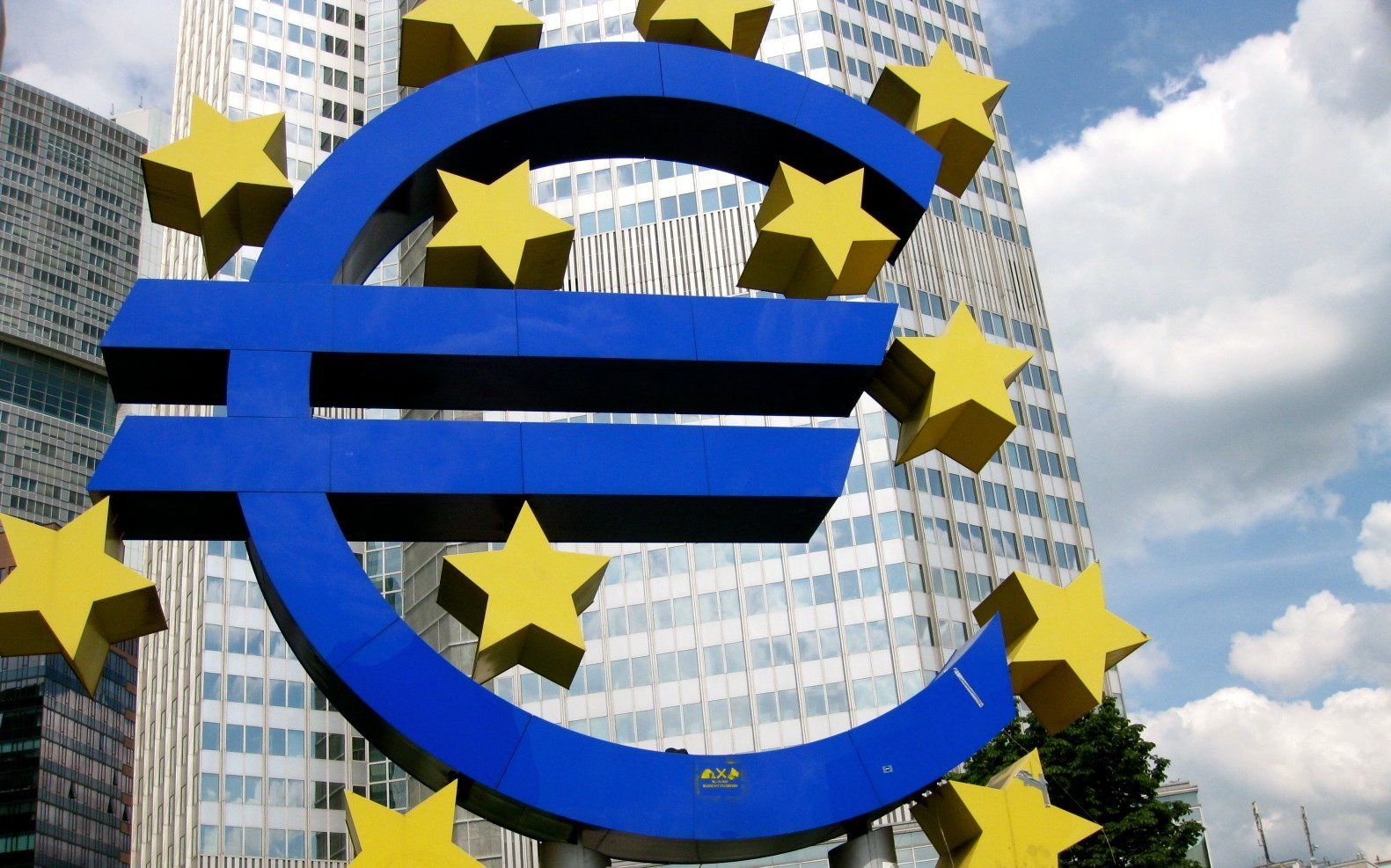The Europe Delusion
News & Social Media / Post
Remoaners are in love with a fictional Europe

One is always struck by the extent to which remoanerism has become a cult religion. They worship a fraud. It’s the somewhat naïve belief that the EU, and in fact Europe, embodies an enlightened liberal progressivism to which the UK is morally and politically inferior. And they would, being that they see themselves as more intelligent, more enlightened, more progressive, and ultimately superior. They imagine that “Europe” is made up of people like them.
It’s certainly true that the functionaries who work in the apparatus of the EU and it’s adjacent “civil society” most certainly are like them but they themselves are an unelected, unrepresentative technocratic elite. The expert class that the British progressive left absolutely worships no matter how badly they screw things up.
And I suppose, if your experience of Europe is taking cheap flights to enjoy Europe’s many vibrant and exciting capital cities, mixing and rubbing shoulders with other middle class liberal graduates, you could easily start to believe your own bullshit.
What’s interesting is that these types believe that Britain is the pariah in leaving the EU, having falling victim to the forces of populism the same as the USA – while the EU remains the beacon of enlightenment. Or as I call it, Grayling Syndrome.
The picture on the ground, however, is somewhat different. The Visegrad states have been squaring up for a fight with the EU Commission for some time and the recent rule of law disputes did not simply fall out of the sky. Meanwhile Europe’s far right is growing in influence and power.
And by far right, I don’t mean generic grumbling about immigration, I mean actual Nazis right across the continent, unashamedly giving Nazi salutes without the slightest hint of shame, right out in the open. It’s happening in Italy and France, and even Macron is having to implement strict conditions on immigration and would could be described as ethnonationalist policies to prevent a far right movement from winning outright. Last year France’s interior minister announced a crackdown on 76 mosques that the government suspects of “separatism” and encouraging extremism.
Britain is nowhere close to that. We certainly should do more to address extremist mosques in the UK and review our immigration policies on similar lines, but there is no mainstream party willing to consider it. It’s interesting that remainers push for proportional representation when, if Europe is anything to go by, it is a means for the far right to establish itself in mainstream discourse. Remainers think FPTP is their enemy because they assume the majority think like them. Such is their delusion.
As to why this is happening, it happens when a society can’t have reasonable discussions about changing demographics. You can kick them off social media and deny them access public platforms, but it’s not going to go away. Far right organisations are highly motivated and when they’re censored rather than debated, it feeds the sense that they’re actually right. Sunshine is the best disinfectant.
The problem for Europe’s establishments, however, is that Europe’s radial right is not entirely wrong. Far from it in fact. Anti-immigrant discourse is no longer exclusively a fringe debate and especially so when Europe’s borders are porous. The failure to get a grip on the influx of illegal immigrants at Dover is what will see a renewed right wing insurgency.
Where this gets interesting is that the EU must acknowledge this undercurrent in European politics. It can’t afford not to. For the EU this is an existential matter. Europe’s radical right waxes and wanes but its presence in the European parliament is growing, and there is renewed talk of a European super group in the Parliament which could have the same number of MEPs (145) as the Progressive Alliance of Socialists and Democrats (S&D).
It is ironic that British Eurosceptics have long argued that the EU could never be a democracy because there is no European demos, but arguably one is emerging and it looks more like right wing populism than Euroluvvie progressivism. If the likes of Lord Adonis and AC Grayling got their way, they could see us re-joining an EU dominated by what they would call the “far right” – especially so with the addition of a UKIP equivalent.
Though it has been said that the EU is totally unresponsive to the demands of Europe’s people, it certainly has adopted more aggressive border policies and in some respects is now more effective at controlling Europe’s borders than the UK is at controlling its own. It may pay lip service to the principles of the Refugee Convention but will turn a blind eye to Eastern European member states abandoning it entirely. Arguably the UK will be the last European state to actually uphold the principles of the Convention.
Then as much as the EU will change politicly, we’re gradually going to see an unpicking of the single market. Europe’s radical right largely compromises of economic nationalists and protectionists. The latest reforms to European haulage have essentially dismantled one of the key tenets of pan-European cabotage (exacerbating the driver shortage).
Meanwhile, in Spain, there are growing calls for protection of Spanish agriculture. Spain’s radical right Vox party insists that “Spanish farmers, ranchers and fishermen are not protected”. Referring to Morocco’s agreements with the EU, Vox criticised measures granting funds to third countries to develop their agriculture, "while allowing the entry of products that do not comply with the regulations, sometimes exceeding the quotas and avoiding duties and tariffs".
It’s interesting to note that the UK, in anticipation of renewed border controls at Dover, has established a direct sea link to Morocco. This no doubt has some impact on Southern Spain’s notorious green house sector (known for slave labour conditions and illegal water consumption). A pivot to Morocco for off-season fruit and veg could very well create an employment hub thereby easing Spain’s illegal immigration problem. EU funding of Moroccan agriculture could very well be an attempt to do the same in order to stave off economic migration and its contribution to the rise of far right parties.
Adding to Europe’s woes, of course, is the self-inflicted energy crisis which is already contributing to considerable inflation and a wider cost of living crisis. At the centre of this is Europe’s dash for renewables and the closure of its baseload generation. This is born of the groupthink within Europe’s aforementioned technocratic elite, resulting in a greater dependence on Russian gas, thereby muting the EU’s regional geopolitical leverage.
Typically it is exactly this kind of economic turbulence that exacerbates right wing and anti-immigrant sentiment. Europe, the UK especially, has used immigration as a sticking plaster to massage GDP, failing to address long standing structural and societal problems. Migrants tend to provide a work force for the low wage service economy, much of which is contingent on the public having disposable income. When that money is now going on energy bills and inflated food bills, we then see an rise in unemployed transients, and a corresponding rise in crime and criminal economic activities such as narcotics and counterfeiting.
I’ve long argued that what passes for a “far right” in Britain looks like the Women’s Institute compared with that found on the continent, and if that is to form the basis of any pan-European demos then we are as well out of it. What’s going to make it a magnitude worse is that patience has already been stretched to breaking point. France has endured a decade of Islamist terrorism while the UK has yet to resolve the epidemic of child grooming while the police and local authorities are crippled by political correctness.
What ultimately makes a far right revival inevitable is the failure of mainstream and establishment parties to live up to their promises. Boris Johnson came to power on the assumption that a Brexit government would finally “take back control” of our borders. Not only has it failed to do that, it is considering the possibility of liberalising visas for India in exchange for an FTA. Meanwhile, it is failing to usefully deport illegal immigrants.
Being that social media polarisation has also polarised our political parties, the Labour party now comprises of crackpots who believe the precise opposite of anyone on the right and the underperformance of the Tories may result in the left inheriting power for a time, with a free hand to pursue its open borders agenda, contrary to the popular will. Thus, it is only a matter of time before the pendulum swings back.
The grand delusion of remainers is that Brexit can be undone and we can revert to the 2012 "cool Britannia" Olympic utopia, back to the economic status quo of yore, failing to note that Europe has not been in a state of suspended animation, economically or politically, and is in the midst of a political identity crisis. The European Commission is still the domain of out of touch liberal elites seeking to impose their value system on a resurgent conservative Europe. It could very easily blow up in their faces. Poland and Hungary are testing the Commission’s authority, seeing what they can get away with. If the EU is incapable of recognising the limits of its moral authority then it risks an unspoken breakup.
The prevailing assumption of Europhiles for the last three decades has been that as Europe grew more prosperous it would become more liberal and that “ever closer union” would be irreversible. They are now finding that it very much is reversible, and that which it imposed, which was never wanted, and never had consent, is now up for debate. If the EU continues to push its punishing climate levies and carbon border taxes, Britain may not be the last to part company with le grand projet.
Recent National News











